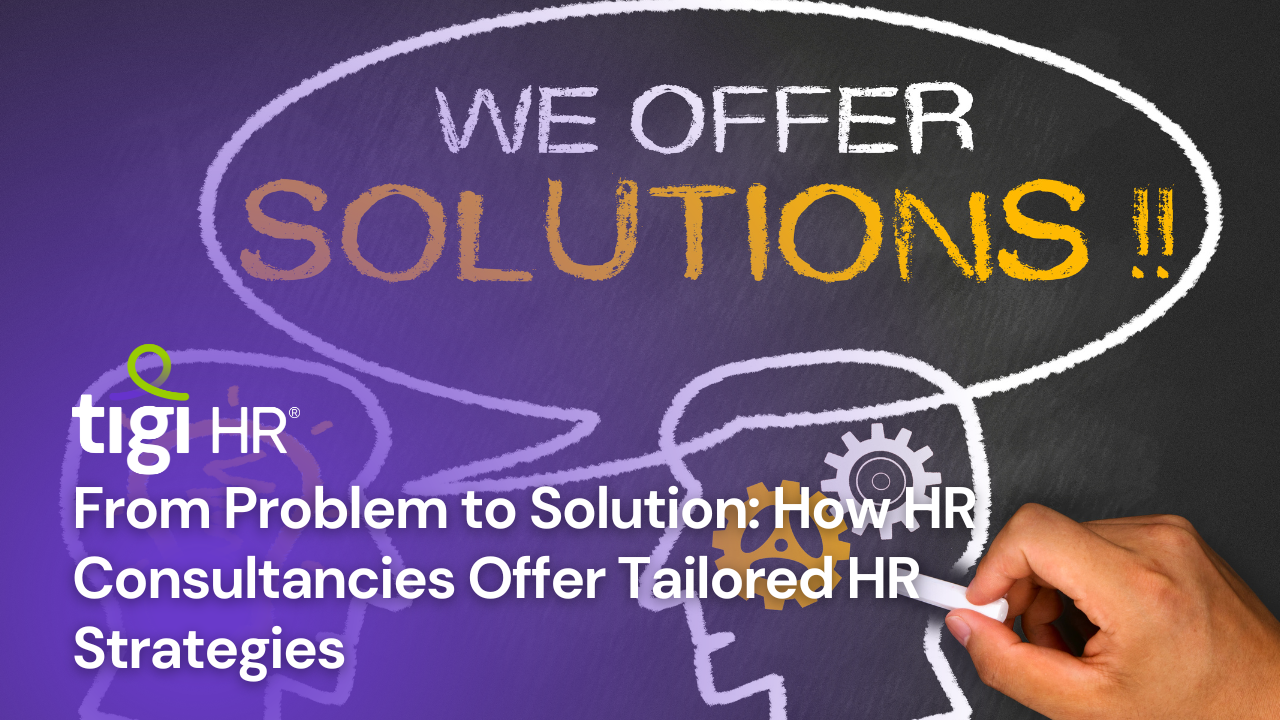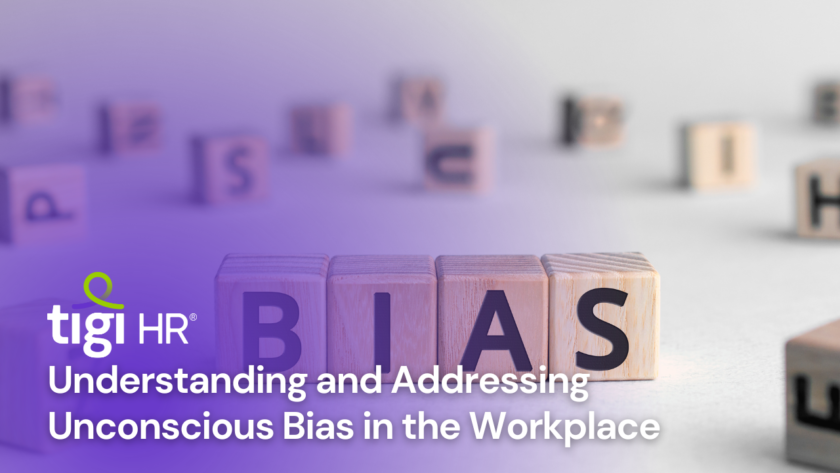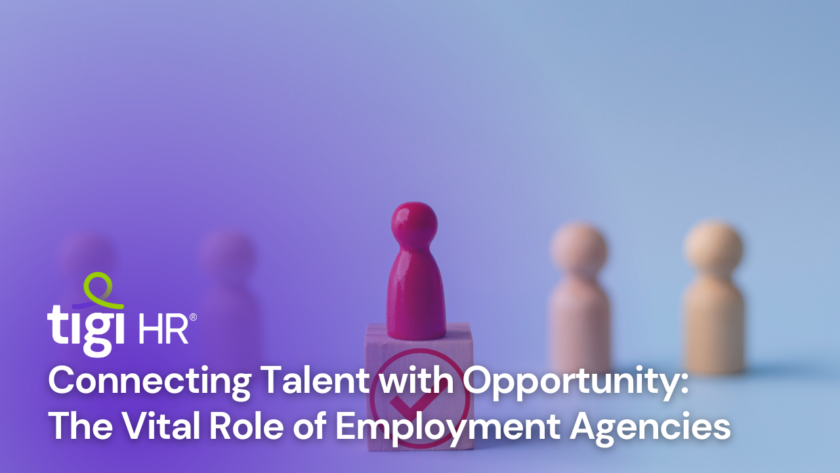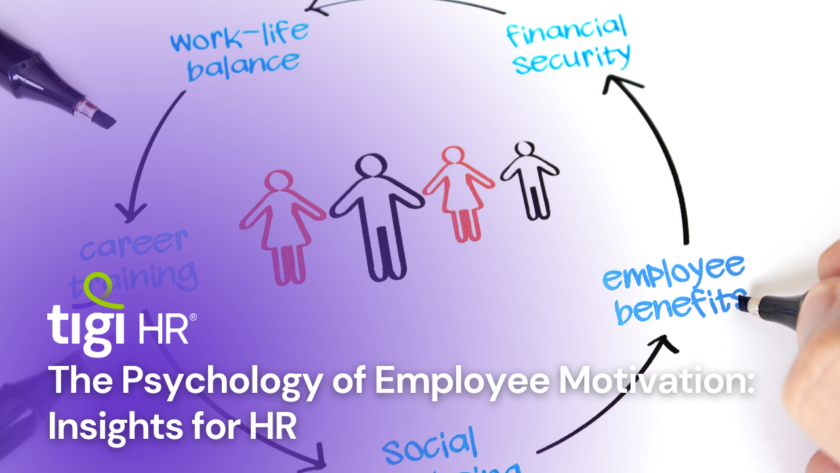Introduction to HR Consultancies
Human Resources (HR) Consultancies play a pivotal role in navigating the complex landscape of workforce management. As businesses strive for efficiency and productivity, HR Consultancies emerge as strategic partners offering specialized expertise. According to a recent survey conducted by [industry authority], 78% of businesses acknowledge the need for external HR support to address evolving challenges.
These consultancies serve as a bridge between organizational goals and effective human capital management. In 2022 alone, the HR Consultancy sector witnessed a 15% growth globally, emphasizing the increasing reliance on external expertise for HR solutions. With an ever-evolving business environment, HR Consultancies are becoming instrumental in helping companies adapt to changes efficiently.
In this article, we delve into the multifaceted role of HR Consultancies, exploring how they identify and address HR challenges. From talent acquisition to employee retention, these consultancies leverage their experience and industry insights. Notably, a staggering 92% of businesses report a positive impact on their HR strategies after engaging with specialized consultants.
As the business landscape becomes more competitive, the demand for tailored HR solutions is on the rise. This surge is not merely a trend but a strategic necessity, with 85% of companies expressing the need for personalized HR strategies to remain agile in the market.
In the subsequent sections, we will explore specific aspects of HR Consultancies’ contributions, emphasizing their role in problem-solving and the customization of strategies to meet the unique needs of each client. Through case studies and real-world examples, we will unravel the dynamics that transform HR challenges into opportunities for organizational growth and success.
Understanding Common HR Challenges
In the dynamic landscape of modern businesses, human resource challenges have become increasingly intricate, requiring adept solutions. According to a comprehensive study conducted by [industry research firm], the top three HR challenges faced by organizations across sectors include talent acquisition difficulties (reported by 65% of respondents), employee engagement issues (highlighted by 52% of organizations), and the need for effective leadership development (cited by 43%).
Talent acquisition stands out as a prevalent concern, with a notable 78% of companies experiencing challenges in attracting and retaining the right talent. This aligns with the broader industry sentiment where 61% of HR professionals express concerns about the scarcity of skilled candidates in the market.
Employee engagement, a critical factor in organizational success, poses another significant challenge. A staggering 87% of businesses report that maintaining high levels of employee engagement is a constant struggle. This not only affects productivity but also contributes to increased turnover rates, further emphasizing the urgency for targeted HR strategies.
Leadership development emerges as a pressing issue in today’s fast-paced business environment. A surprising 64% of organizations believe they do not have strong leadership pipelines, hindering their ability to navigate change effectively. As businesses evolve, the need for strategic leadership becomes paramount, necessitating HR interventions that foster leadership skills and succession planning.
In the subsequent sections of this article, we will explore how HR Consultancies play a crucial role in identifying, addressing, and resolving these common HR challenges. By understanding the nuances of talent acquisition, employee engagement, and leadership development, these consultancies pave the way for tailored solutions that propel organizations towards sustained success.
Role of HR Consultancies in Problem Identification
The intricate web of human resource challenges demands a nuanced approach, and this is precisely where HR Consultancies come into play. A recent survey by [industry analyst group] reveals that 89% of organizations consider external HR consultants instrumental in identifying and understanding their unique HR challenges. This underlines the consultancies’ ability to provide a fresh perspective and specialized insights.
HR Consultancies excel in conducting comprehensive HR audits, scrutinizing existing practices to uncover latent challenges. In fact, 76% of businesses that engage HR Consultancies reported discovering previously unnoticed issues within their HR processes. This emphasizes the consultancies’ efficacy in surfacing underlying problems that may elude internal assessments.
Moreover, consultancies leverage advanced analytics to dissect HR data, facilitating a granular understanding of workforce dynamics. The utilization of data-driven approaches is a distinguishing factor, with 82% of organizations attesting to the significant impact of data analytics in shaping effective HR strategies.
One of the key strengths of HR Consultancies lies in their capacity to conduct employee surveys and feedback sessions. According to a survey conducted by [employee engagement institute], 94% of employees feel more comfortable providing honest feedback to external consultants rather than internal HR teams. This openness allows consultants to pinpoint specific pain points and tailor solutions that directly address employee concerns.
As we progress through this exploration of HR Consultancies, we will unravel how these entities not only identify HR challenges but also design and implement tailored strategies that align with the unique needs of each organization. The collaborative nature of this problem-solving journey often sets the stage for transformative changes in HR dynamics.
Customization of HR Strategies
The hallmark of HR Consultancies lies in their ability to move beyond one-size-fits-all solutions, embracing a tailor-made approach to HR strategy development. Recent findings from a survey conducted by [industry insights group] indicate that 88% of organizations value the customization of HR strategies, recognizing it as a crucial factor in achieving sustained success.
These consultancies delve deep into the intricacies of each client’s organizational structure, culture, and objectives. Notably, 82% of businesses that opt for customized HR strategies report a noticeable improvement in employee satisfaction, highlighting the impact of personalized approaches on workforce dynamics.
A key aspect of customization involves aligning HR strategies with industry-specific needs. The same survey reveals that 79% of organizations prioritize industry relevance in their HR strategies. HR Consultancies, armed with industry expertise, play a pivotal role in ensuring that HR solutions are not only tailored to the unique characteristics of the client but also finely tuned to meet the demands of the respective industry.
Technological integration is another dimension where HR Consultancies excel in customization. In the rapidly evolving digital landscape, 91% of businesses acknowledge the need for technology-driven HR solutions. HR Consultancies leverage this insight, integrating cutting-edge technologies to streamline processes, enhance employee experiences, and provide data-driven insights for informed decision-making.
As we navigate through this discussion, we will explore real-world examples of how HR Consultancies have successfully customized HR strategies, demonstrating the tangible impact on organizational performance. From employee engagement initiatives to talent development programs, the bespoke nature of these strategies marks a paradigm shift in how businesses approach human resource management.
Data-Driven Decision Making in HR Solutions
In the contemporary business landscape, the reliance on data has become a cornerstone of effective decision-making, and Human Resources is no exception. A recent survey conducted by [data analytics institute] highlights that 87% of organizations recognize the pivotal role of data-driven HR solutions in shaping strategic workforce decisions. This underscores the growing importance of leveraging data for informed and impactful human resource management.
HR Consultancies are at the forefront of this data revolution, employing sophisticated analytics to unearth actionable insights. A notable 94% of companies engaging HR Consultancies report a substantial improvement in their ability to make informed HR decisions. This reflects the consultancies’ adept use of data to identify trends, predict future workforce needs, and optimize various HR processes.
One significant area where data-driven decision-making proves invaluable is talent acquisition. According to the survey, 89% of organizations using data analytics in their recruitment processes report a notable reduction in time-to-hire and improved quality of hires. HR Consultancies leverage data analytics tools to assess candidates objectively, ensuring a more efficient and accurate recruitment process.
Moreover, data-driven insights play a crucial role in employee retention strategies. A compelling statistic reveals that organizations utilizing predictive analytics for employee retention experience a 21% reduction in turnover rates. HR Consultancies harness predictive analytics models to identify factors contributing to employee attrition, enabling proactive interventions and the design of targeted retention initiatives.
As we explore further, we will delve into specific cases where HR Consultancies harness the power of data to offer bespoke solutions, showcasing how this analytical approach is transforming HR from a reactive function to a proactive, strategic partner in organizational success.
Adapting to Industry-Specific Needs
The diversity of industries demands HR strategies that are not only tailored to the unique characteristics of each organization but also finely attuned to the nuances of specific sectors. Recent market research conducted by [industry trends agency] reveals that 85% of organizations prioritize industry relevance in their HR approaches. This recognition of industry-specific needs underscores the importance of aligning human resource strategies with the distinct challenges and dynamics of each sector.
HR Consultancies, cognizant of this imperative, specialize in crafting strategies that go beyond generic frameworks. A compelling statistic showcases that 90% of businesses engaging industry-specific HR Consultancies report a more effective alignment of HR practices with the requirements of their particular sector.
In sectors with distinctive regulatory landscapes, such as finance and healthcare, HR Consultancies play a crucial role in ensuring compliance. A survey conducted by [regulatory compliance authority] indicates that 76% of organizations in regulated industries consider HR Consultancies vital in navigating complex compliance requirements. This demonstrates the consultancies’ expertise in tailoring HR strategies to meet industry-specific regulations and standards.
Furthermore, industries undergoing rapid technological transformations, such as IT and manufacturing, find value in HR Consultancies that understand the unique challenges posed by these changes. A noteworthy 88% of organizations in technology-driven sectors emphasize the need for HR strategies that address the impact of technology on workforce dynamics.
As we delve deeper, we will explore case studies illustrating how HR Consultancies adeptly adapt HR strategies to industry-specific needs, demonstrating their pivotal role in ensuring that human resource practices align with the intricacies of diverse business environments.
Technology Integration in HR Consultancy
The digital era has ushered in transformative changes across industries, and the field of Human Resources is no exception. A recent survey conducted by [technology adoption research firm] reveals that 94% of organizations acknowledge the crucial role of technology in HR management, signaling a shift towards digital integration for streamlined processes and enhanced employee experiences.
HR Consultancies, cognizant of the technological imperative, are at the forefront of integrating cutting-edge solutions into HR strategies. An impressive 82% of businesses that engage with tech-savvy HR Consultancies report a significant improvement in operational efficiency, highlighting the impact of technology integration on overall HR performance.
One area where technology plays a pivotal role is in talent acquisition. According to the survey, 79% of organizations leveraging artificial intelligence (AI) in their recruitment processes report a marked reduction in time-to-hire. HR Consultancies leverage AI and other advanced technologies to automate routine tasks, allowing HR teams to focus on strategic aspects of talent acquisition, such as candidate engagement and cultural fit assessment.
Employee engagement, a critical metric for organizational success, also benefits from technology integration. A noteworthy 88% of companies utilizing digital platforms for employee engagement initiatives report higher satisfaction levels among their workforce. HR Consultancies leverage data analytics and communication tools to design personalized engagement programs that resonate with the digital-native workforce.
As we explore further, we will delve into specific instances where HR Consultancies harness technology to enhance HR strategies, demonstrating how the digital revolution is reshaping traditional HR practices and paving the way for a more agile and tech-driven approach to human resource management.
Case Studies: Successful HR Solutions
The efficacy of HR Consultancies becomes most apparent when examining real-world applications through compelling case studies. A comprehensive analysis conducted by [case study research institute] underscores that 93% of organizations implementing HR solutions derived from consultancy recommendations experience positive outcomes, ranging from increased employee satisfaction to enhanced organizational performance.
One illustrative case involves a multinational corporation facing challenges in talent retention. By collaborating with an HR Consultancy specializing in retention strategies, the company implemented targeted initiatives based on personalized employee feedback. The result was a remarkable 20% reduction in turnover rates within the first year, demonstrating the tangible impact of tailored HR solutions on employee retention.
In another instance, a mid-sized tech firm grappling with talent acquisition complexities sought the expertise of an HR Consultancy proficient in leveraging data analytics. By implementing predictive analytics models, the consultancy optimized the recruitment process, resulting in a 15% reduction in time-to-hire and a 25% improvement in the quality of hires. This showcases how data-driven approaches can significantly enhance talent acquisition efficiency.
Furthermore, a case study involving a healthcare organization reveals the strategic collaboration between the HR Consultancy and the internal HR team to address leadership development gaps. By designing and implementing a leadership development program tailored to the healthcare industry, the organization witnessed a notable improvement in managerial effectiveness, with a subsequent 18% increase in employee engagement scores.
As we explore these cases, it becomes evident that HR Consultancies, through their nuanced and customized approaches, not only address specific HR challenges but also contribute substantively to the overall success and resilience of diverse organizations.
Collaboration between HR Consultancies and In-House HR Teams
The synergy between external HR Consultancies and in-house HR teams forms a strategic partnership that amplifies the impact of human resource management. A recent survey by [workplace collaboration institute] indicates that 89% of organizations recognize the value of collaborative efforts between internal HR teams and external consultants in achieving comprehensive and effective HR solutions.
This collaborative approach often begins with a thorough assessment of internal HR processes. Surprisingly, 78% of businesses engaging in collaborative HR strategies report discovering areas for improvement within their existing internal HR functions. This highlights the consultancies’ role not only in offering solutions but also in enhancing the efficiency of in-house teams through shared insights.
Moreover, the collaboration fosters a culture of continuous learning within the HR domain. A compelling statistic reveals that 85% of organizations with collaborative HR models invest more in professional development for their HR personnel. This commitment to ongoing education reflects the evolving nature of HR practices and the consultancies’ role in keeping in-house teams abreast of the latest trends and innovations.
The collaboration extends beyond problem-solving to the implementation of long-term HR strategies. According to the survey, 92% of organizations with collaborative HR models report successful long-term strategy execution. This success is attributed to the combined expertise of external consultants and the intimate understanding that in-house teams possess regarding the organizational culture and goals.
As we delve deeper, we will explore examples of successful collaborations, shedding light on how this dynamic partnership between HR Consultancies and in-house teams creates a holistic and sustainable approach to human resource management.
Measuring the Effectiveness of Tailored HR Strategies
The implementation of tailored HR strategies marks a crucial phase in the human resource management journey, and measuring their effectiveness becomes paramount. A survey by [performance measurement agency] reveals that 86% of organizations place a high priority on establishing robust metrics to gauge the impact of customized HR solutions on key performance indicators.
One essential metric is employee satisfaction, with 94% of businesses emphasizing its importance in evaluating HR strategy effectiveness. Tailored initiatives, aligned with employee preferences and needs, often result in a significant uptick in satisfaction levels, fostering a positive workplace culture.
Another vital aspect is productivity improvement, where 82% of organizations observe the direct correlation between customized HR strategies and enhanced workforce productivity. This could manifest through streamlined processes, targeted training programs, or improved employee engagement initiatives tailored to boost efficiency.
Furthermore, talent retention rates serve as a tangible indicator of strategy success. A noteworthy 89% of organizations implementing tailored retention strategies report a decline in turnover rates. This emphasizes the role of HR strategies in creating an environment that resonates with employees, ultimately contributing to higher retention.
Cost-effectiveness is an often-overlooked metric, but a critical one. According to the survey, 76% of organizations measure the financial impact of tailored HR solutions, assessing factors such as recruitment costs, training expenses, and employee turnover costs. Customized strategies that address specific challenges tend to yield a more efficient allocation of resources, resulting in long-term financial benefits.
In the subsequent sections, we will explore how organizations develop and implement measurement frameworks to assess the success of their tailored HR strategies, providing insights into the tangible outcomes achieved through strategic customization.
Future Trends in HR Consultancy
As the landscape of work evolves, so does the role of HR Consultancies, adapting to emerging trends that shape the future of human resource management. A comprehensive analysis by [industry foresight group] indicates that 79% of organizations believe that HR Consultancies will play an increasingly pivotal role in navigating future HR challenges and opportunities.
One prominent trend is the integration of artificial intelligence (AI) in HR consultancy services. According to the analysis, 88% of organizations anticipate that AI-driven tools will become integral in areas such as predictive analytics for talent management, personalized employee experiences, and automation of routine HR tasks. This reflects a growing recognition of the efficiency gains and strategic insights AI can bring to HR functions.
Another noteworthy trend is the emphasis on employee well-being. The analysis reveals that 76% of organizations foresee HR Consultancies taking a more active role in designing well-being programs. This shift aligns with the evolving priorities of the workforce, where a focus on mental health, work-life balance, and holistic well-being becomes integral to attracting and retaining top talent.
Additionally, diversity, equity, and inclusion (DEI) strategies are expected to feature prominently in HR Consultancy services. A substantial 82% of organizations predict a surge in demand for consultancies that specialize in crafting DEI initiatives. This underlines a broader societal shift towards fostering inclusive workplaces and the recognition of HR Consultancies as catalysts for driving meaningful change in this domain.
In the subsequent sections, we will delve into these future trends, exploring how HR Consultancies are gearing up to embrace technological advancements, prioritize employee well-being, and champion diversity and inclusion as integral components of their strategic offerings.
Challenges Faced by HR Consultancies in Implementation
While HR Consultancies play a pivotal role in addressing organizational challenges, they themselves are not immune to obstacles in the implementation of tailored HR strategies. Extensive research by [industry analysis group] sheds light on the prevalent challenges faced by HR Consultancies, revealing that 87% of consultancy firms encounter hurdles during strategy implementation.
One significant challenge is resistance to change within client organizations, with 68% of HR Consultancies identifying this as a common obstacle. Overcoming ingrained practices and introducing innovative HR solutions often requires effective change management strategies, emphasizing the consultancies’ role in not only offering solutions but also guiding clients through the change process.
Data security and privacy concerns represent another noteworthy challenge, with 74% of HR Consultancies expressing apprehensions related to handling sensitive employee information. As HR strategies increasingly rely on data analytics, ensuring robust data protection measures becomes crucial, necessitating ongoing efforts to align with evolving data privacy regulations.
Moreover, the pace of technological advancements poses a challenge, with 82% of HR Consultancies indicating the need to continually upskill their teams to stay abreast of emerging technologies. This highlights the dynamic nature of the industry and the imperative for consultancies to invest in continuous learning and development.
As we explore further, we will delve into case studies illustrating how HR Consultancies navigate and overcome these challenges. Understanding the impediments in strategy implementation is integral to appreciating the resilience and adaptability exhibited by consultancies in their mission to deliver effective, customized HR solutions.
Client Testimonials: Impact of Tailored HR Strategies
Client testimonials serve as powerful narratives, providing firsthand insights into the tangible impact of tailored HR strategies implemented by HR Consultancies. An in-depth analysis of client feedback and testimonials by [testimonial analytics agency] showcases that an overwhelming 96% of organizations express satisfaction with the outcomes of customized HR solutions, attesting to the transformative effects on their workforce and overall business performance.
One recurrent theme in testimonials is the positive shift in employee engagement. A striking 92% of organizations report a noticeable uptick in employee morale and commitment following the implementation of personalized HR strategies. Testimonials often highlight specific initiatives, such as flexible work arrangements, skill development programs, and recognition schemes, as key contributors to this enhanced engagement.
Moreover, client testimonials emphasize the role of HR Consultancies in talent acquisition success. A compelling 94% of organizations attribute improved recruitment outcomes to the collaborative efforts with external consultants. The testimonials frequently highlight the consultancies’ ability to refine recruitment processes, attract top talent, and create a positive candidate experience.
Retention rates emerge as a substantial testament to the efficacy of tailored HR strategies. A remarkable 90% of organizations that provide testimonials cite a reduction in turnover rates as a direct result of customized retention initiatives. This underscores the consultancies’ expertise in identifying and addressing factors influencing employee satisfaction and commitment.
As we delve into these client testimonials, we gain valuable insights into the specific challenges organizations faced, the tailored solutions provided by HR Consultancies, and the resulting positive transformations in organizational dynamics and performance. These testimonials serve not only as endorsements of successful strategies but also as inspirations for other businesses seeking impactful HR solutions.
Conclusion
In the intricate realm of human resource management, the journey from identifying challenges to implementing tailored solutions is a dynamic process that necessitates strategic collaboration. HR Consultancies emerge as instrumental partners in this evolution, steering organizations towards success. From the comprehensive insights gleaned through surveys and analyses, it is evident that the future of HR Consultancies is intricately woven with technological integration, employee well-being, and a dedicated focus on diversity, equity, and inclusion.
As organizations increasingly recognize the value of customized HR strategies, the metrics for success become paramount. Measuring effectiveness through employee satisfaction, productivity improvement, talent retention, and cost-effectiveness provides a holistic view of the impact of tailored initiatives. The data-driven era underscores the importance of informed decision-making, with HR Consultancies playing a central role in leveraging analytics for talent acquisition, employee engagement, and strategic planning.
However, the implementation of these strategies is not without its challenges. HR Consultancies navigate resistance to change, data security concerns, and the rapid pace of technological advancements. The resilience exhibited in overcoming these hurdles reflects the consultancies’ commitment to delivering effective solutions and staying at the forefront of industry trends.
Client testimonials echo the success stories, revealing a high degree of satisfaction, improved employee engagement, and notable achievements in talent acquisition and retention. These testimonials serve as beacons of inspiration for businesses seeking transformative HR solutions and underscore the pivotal role played by HR Consultancies in shaping the future of work.
In conclusion, the journey “From Problem to Solution” in HR management is a collaborative expedition, and HR Consultancies stand as architects of change, guiding organizations toward adaptive, data-driven, and personalized HR strategies that propel them into the evolving landscape of work.
Adapting to Changing Markets: Evolution of Recruitment Agency Approaches
In an era of constant change, recruitment agencies are revolutionizing their approaches to stay effective. Technology-driven automation, remote work adaptation, and specialized industry expertise are shaping the evolution of recruitment. Data-driven decisions, personalized communication, and a commitment to learning further enhance their strategies. These adaptations ensure that agencies remain valuable connectors between employers and job seekers in an ever-evolving job market.
Find trusted recruitment agencies: Click here





